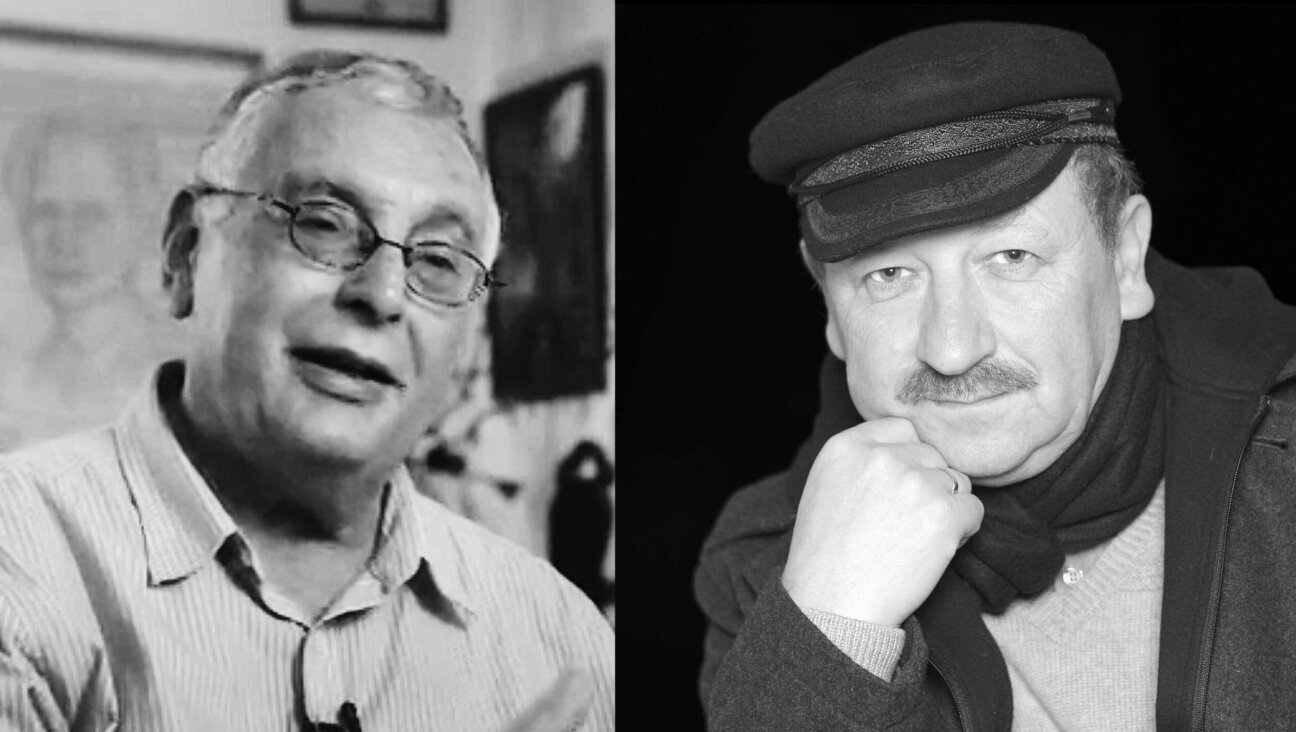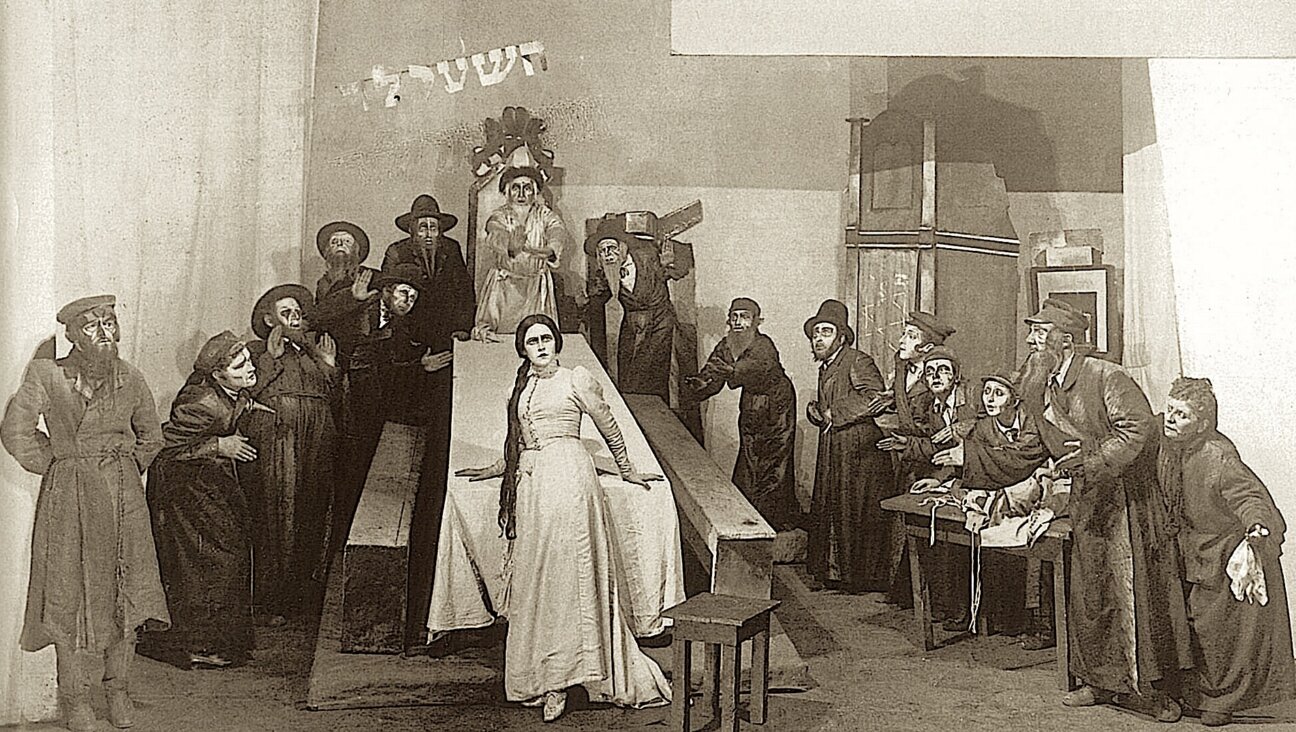רעפֿעראַט אויף ייִדיש וועגן קאָמיקער שמעון דזשיגאַןLecture in Yiddish on comedian Shimon Dzhigan
די ייִדיש־פּראָפֿעסאָרין מרים אײַזיקס וועט דערקלערן ווי אַזוי ער האָט זיך אַנטוויקלט ווי אַ סאַטיריקער אין פּוילן און ישׂראל.

די „ייִדיש־ליגע“, בײַנאַנד מיט דער ירושלימער געזעלשאַפֿט, „יאָ — ייִדיש־אָרט“, לאַנצירט די וואָך אַ סעריע אָנלײַן־רעפֿעראַטן „שמועסן בחבֿרותא“.
אינעם ערשטן, וואָס וועט פֿאָרקומען דאָנערשטיק, דעם 28סטן יאַנואַר, 1:00־2:30 ניו־יאָרקער צײַט, וועט די ייִדיש־פּראָפֿעסאָרין מרים אײַזיקס האַלטן אַ רעפֿעראַט וועגן דעם גרויסן ייִדישן קאָמיקער, שמעון דזשיגאַן. אין איר רעדע וועט זי דערקלערן ווי אַזוי דזשיגאַנס סאַטירע האָט זיך אַנטוויקלט במשך פֿון די יאָרן און ווי אַזוי זײַן קאָמעדיע האָט אָפּגעשפּיגלט די פּאָליטישע ווירקלעכקייטן אין פּוילן און ישׂראל.
כּדי צו זען די פּראָגראַם, וואָס איז בחינם, גיט אַ קוועטש דאָ.
שמעון דזשיגאַן איז געווען איינער פֿון די פּאָפּולערסטע קאָמיקער און סאַטיריקער אויף ייִדיש. זײַן סטיל קענן מען באַשרײַבן ווי אַ געמיש פֿונעם אַמעריקאַנער קאָמיקער אָליווער האַרדי מיטן אַמעריקאַנער סאַטיריסט וויל ראָדזשערס.
צוזאַמען מיט זײַן לאַנגיאָריקן בינע־שותּף ישׂראל שומאַכער, איז ער געווען אַ גרויסער שטערן אין פּוילן, קודם פֿונעם קליינקוסט־טעאַטער און שפּעטער פֿון אַ סעריע ייִדישע פֿילמען. נאָך דער מלחמה האָט דער דועט געמאַכט דעם רירנדיקן דאָקומענטאַר־פֿילם, „אונדזערע קינדער“, וועגן זייערע איבערלעבונגען מיט קינדער וואָס זענען פֿאַריתומט געוואָרן צוליבן חורבן. אין ישׂראל איז ער ווידער געוואָרן אַ שטערן, בײַטנדיק אַ סך פֿון זײַנע פּאָליטישע סקעטשן, זיי זאָלן זיך צופּאַסן צו דער ישׂראלדיקער געזעלשאַפֿט. ער איז געוואָרן אַזוי פּאָפּולער, אַז ער איז געווען דער איינציקער אין דער ייִדישער מדינה וועמען ס׳איז געלונגען צו שאַפֿן אַ טעלעוויזיע־פּראָגראַם אויף מאַמע־לשון.
מרים אײַזאַקס, אַ פּענסיאָנירטע פּראָפֿעסאָרין פֿון ייִדיש בײַם מערילאַנדער אוניווערסיטעט, זעצט איצט איבער שמעון דזשיגאַנס זכרונות, „דער כּוח פֿון ייִדישן הומאָר“.
A message from our Publisher & CEO Rachel Fishman Feddersen

I hope you appreciated this article. Before you go, I’d like to ask you to please support the Forward’s award-winning, nonprofit journalism during this critical time.
At a time when other newsrooms are closing or cutting back, the Forward has removed its paywall and invested additional resources to report on the ground from Israel and around the U.S. on the impact of the war, rising antisemitism and polarized discourse.
Readers like you make it all possible. Support our work by becoming a Forward Member and connect with our journalism and your community.
— Rachel Fishman Feddersen, Publisher and CEO






















